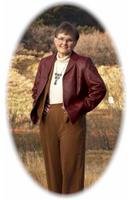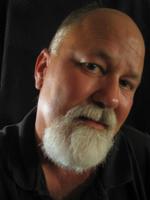
Ask the Authors:
Do you do extensive biographies of your main characters before you begin to write? Any other procedures or programs for creating them? I actually do create extensive internal biographies. I think that their looks and clothing are somewhat important, but creating an internal clockwork that provides a natural impetus for internal monologues and responses helps keep the character development real. --
Patricia Hickman
No. I get in their shadow and see where they go and what they do. Along the way, I learn about them. Sometimes I learn surprising things. I do, however, jot down information about them as I learn it, lest my 35 year-old, coal-haired leading man become a 41 year-old, redheaded woman.
--Alton Gansky
I know I’m “supposed” to write extensive biographies, but I don’t. I do jot down sketchy notes, and my imagination fills in the rest as I go along. Even though my novels are more character-driven than plot-driven, I spend much more time agonizing over the plot. Maybe because the characters come to me more naturally and more fully developed. I seem to know them without having to spend time writing down all the details. --
Ann Tatlock
What I know about my characters--and I know a lot even before I begin writing their story--is mostly in my head. I do keep a chart of their basic physical characteristics--age, eye color, hair color, etc.--just for the sake of reference. I used to do really exhaustive biographies, but I eventually discovered it was a waste of time (for me). Whatever went into the biographies was redundant, because I "live" with my people for long periods of time anyway, and just as I wouldn't have to print out all this information about one of my family members, I don't need to do it for a character either. -
BJ Hoff
I don't do extensive biographies, because they change while I'm writing. I don't have procedures or programs, I simply allow myself to be inspired by people I see, incidents that occur, books I've read. --
Hannah Alexander
Either before I begin or by about chapter three, I write first person autobiographies of my main characters. I use "stream of consciousness" writing for this, letting the character tell me his/her story from birth to the time the novel opens. This gets me into their heads and helps me understand their motivations for the things they will do in my novel. --
Robin Lee Hatcher
Yes, complete with pictures of them and anything special to them, be it an animal (like Kodi, Annie's German shepherd in Kaleidoscope Eyes), or a cane with a silver lion's head top (such as Rafe has in What Lies Within). I write down their emotional, spiritual, and physical characteristics and issues, and what they need to learn. And I talk with them. Yeah, yeah, weird, I know. But a friend once suggested that the best way to get to know your characters is to sit down and have a cup of coffee with them. So I do that. And I'm always amazed at what I learn. Especially if I'm not writing them the way they want me to...the ingrates. I mean, I created them! But characters do take on personalities and you can't go against what you've laid as their foundation. Or they just don't work right. --
Karen Ball
Yes, I do extensive bios of my main characters, and mini-bios of the minor ones. The Myers-Briggs Type Indicator is very helpful in making sure I get a mix of personalities with both strengths and weaknesses. I also choose photos of people from magazines and have them sitting about my desk in picture frames, basing my physical descriptions on what I see in the photo. That helps me get more specific details than just red hair, brown eyes.
--Liz Curtis Higgs
There are two schools of thought here. One is to do extensive "dossiers"; the other is to add to the character gradually as story needs arise. I have to know how the character looks (I clip magazine pics or find them on the Web) and sounds (I do a lot of free form "voice journals" of the characters talking) and answer a few basic questions. Then I let the characters take shape as I move along. -
James Scott Bell
I get to know my characters as I write, just as I get to know my plot. Yes, it means a lot of going back to layer in personality traits, motivation and backstory, but that’s what works for me. And I happen to love rewriting, so I’m reading over my story multiple times anyway. I’ve tried filling out character sheets and using personality profiles, etc. It just doesn’t work for me. If I use any “technique” for creating characters, it’s modeling them after an actual person I know. But I’ll never tell who my “models” have been. ; ) –
Deborah Raney
No. A basic sketch and then I move forward from there and discover them as I go. This helps influence the plot, for although I have a good idea of what point B is, but how they get there from point A is sketchy at the get go. Thinking about anything more detailed at first gives me hives. --
Lisa Samson
Yes, I usually know a lot about the main characters before I start the first draft, just as I know the setting and the plot very well. I’ve tried just diving in without much preparation, working it out as I go along on the first draft, and frankly I find that method frustrating. It’s one thing to throw out a lot of raw ideas that lead to a dead end; it’s a much more painful thing to throw out ten completed chapters. So I’ve learned to begin the creative process with brainstorming files, which are not limited to characterization or plot or setting, but flow freely between every aspect of a story idea in a stream of consciousness kind of way. I just go and go until I hit on something rich in one area or another, which I might then use to start a whole new “stream.” Some of these ideas deal with the characters directly, and some are external to them, but everything helps me understand who and how the people in the story need to be, just as the people help me know where and when they need to be. I do not subscribe to the school that says the characters must drive the story, because that means plot driven stories are more superficial. Why be so limiting in my thinking? Imagine a painter who insists that the yellows must go on the canvas first. That procedure might mean something to him as an individual, or be something he finds helpful, but to make such a rule apply to everyone? Ridiculous. What I’m saying is my procedure for creating characters is identical with, and simultaneous to, my procedure for creating everything else. For example, characters can be driven just as legitimately by settings as by plot ideas or by other characters. Good novels handle all of them so seamlessly it’s not possible to discover where the author started out. Good novels are like a dance, in which every aspect leads sometimes, and sometimes follows. For that matter, settings often ARE characters in a well written novel for all practical purposes. Just like any character, a well sketched setting can establish moods for the reader, teach the reader things about themselves, and move the story forward. Think of THE OLD MAN AND THE SEA. In a similar way, characters can be thought of as settings themselves, repositories for ideas. Think of SLAUGHTERHOUSE FIVE. Take a crude, harsh man who is totally unconcerned about demonstrating his bodily functions in public, then cause him to deal with some delicate and fragile idea in a very serious way. Then take a harsh physical environment, put a newborn baby naked in the middle of it, and let the babe be brought up by wolves. The same story could be told either way, in terms of theme. But I digress. So anyway, when I have enough brainstorming done, I go back and mine the information from these files—from all the various “streams”—pulling qualities and ideas and details from here and there, looking for patterns that align with each other, organizing all of it into something more formal, which I can reference later. Biographies, setting sketches, metaphors, etc.. But for me the key when creating all these things is not to be concerned about who or what is driving them this way or that. Just let the ideas flow without judging them, and the good ones will always out. --
Athol Dickson
No, but I do ask myself what is their desire? What is the most important thing they want in their life and do they know that's what they want? I ask myself what tangible object would represent that for them and how will they get that by the end of the book? One of our colleagues Ron Benry, created a program to keep track of things like hair color, age, nickname, etc. which I love! And I look at things like the Myers-Briggs Personality Inventory and a list from Carolyn Pearson's book
Awakening the Heroes Within which includes archtypes, their stories, their addicitions, their "dragons/problems" and their gift or virtue. But then I let the character sort of take over and hope I can keep her/them in check so I don't get to the end of the book and have to write ten more to finish off their desires!
Jane KirkpatrickI have a little Moleskine notebook that I carry around, and as I “know” something about a character, I write it down in that notebook. Once I’ve done that, I very, very rarely check back to keep my facts straight. The act of writing it down just helps me remember. And I often go back and fill in things in my manuscript as I “learn” them. But on a novel with historical background, such as DEEP BLUE, I research the historical characters in depth and create very detailed timelines before I begin writing. --
Tom Morrisey
I do a simple 4 x 6 card that contains their birthday (important, and not for astrological reasons), their physical description, their Myers-Briggs type, and their secret. That's all I need to begin. --
Angela Hunt




















